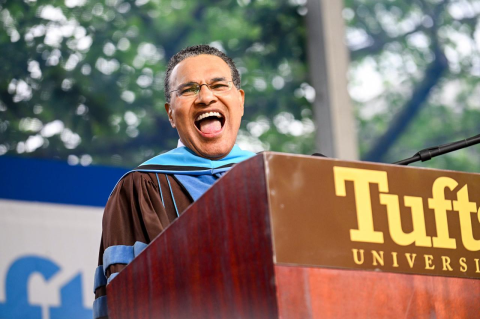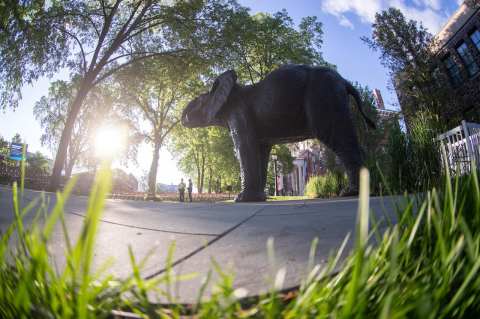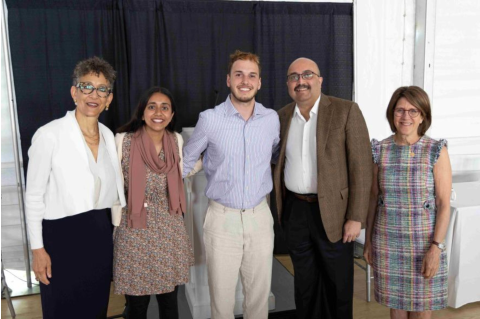WBUR
News
Today’s Leaders Must Dream Big, Be Prepared, Act Responsibly
Educator and mathematician Freeman A. Hrabowski III urges the Class of 2025 to roll up their sleeves and get ready to change the world2025 Commencement Weekend in Pictures
Photos from the all-University Commencement Ceremony, Baccalaureate Service, and Illumination CeremonyAdvocating for Equity at Every Level
Michael Zarra, M25, honored with Tufts Presidential Award for Civic Life for his leadership in policy, research, and community engagement.
CommonWealth Beacon
The Commonwealth has the money to protect the common wealth
This opinion piece links to a 2014 Boston Globe analysis of Massachusetts’ wealth by Evan Horowitz, a former Globe columnist who is now executive director of Tisch College’s cSPA.After 20 Years in Prison, He’s Now a Tufts Grad
Nathan Miksch is the first TUPIT student to start his bachelor’s degree behind bars and finish it on campus
POLITICO
What’s driving Gen Z’s voting behavior?
Data from both CIRCLE and the Cooperative Election Study is cited in this article on the youth gender voting gap in the 2024 election.Mikayla Paquette’s Hoop Dreams
Finding joy in basketball and purpose in public service, she has created a program that aims to empower youth, on and off the court.
VOX







